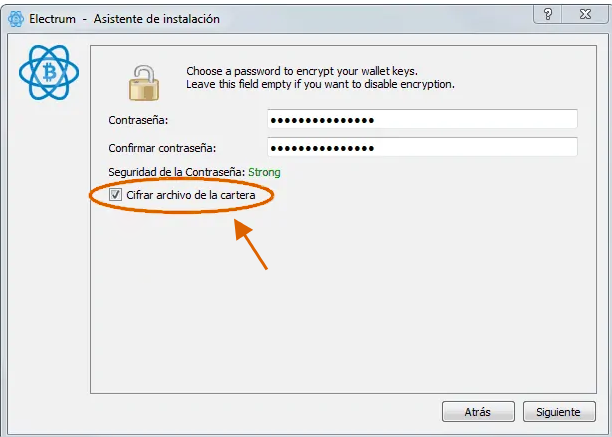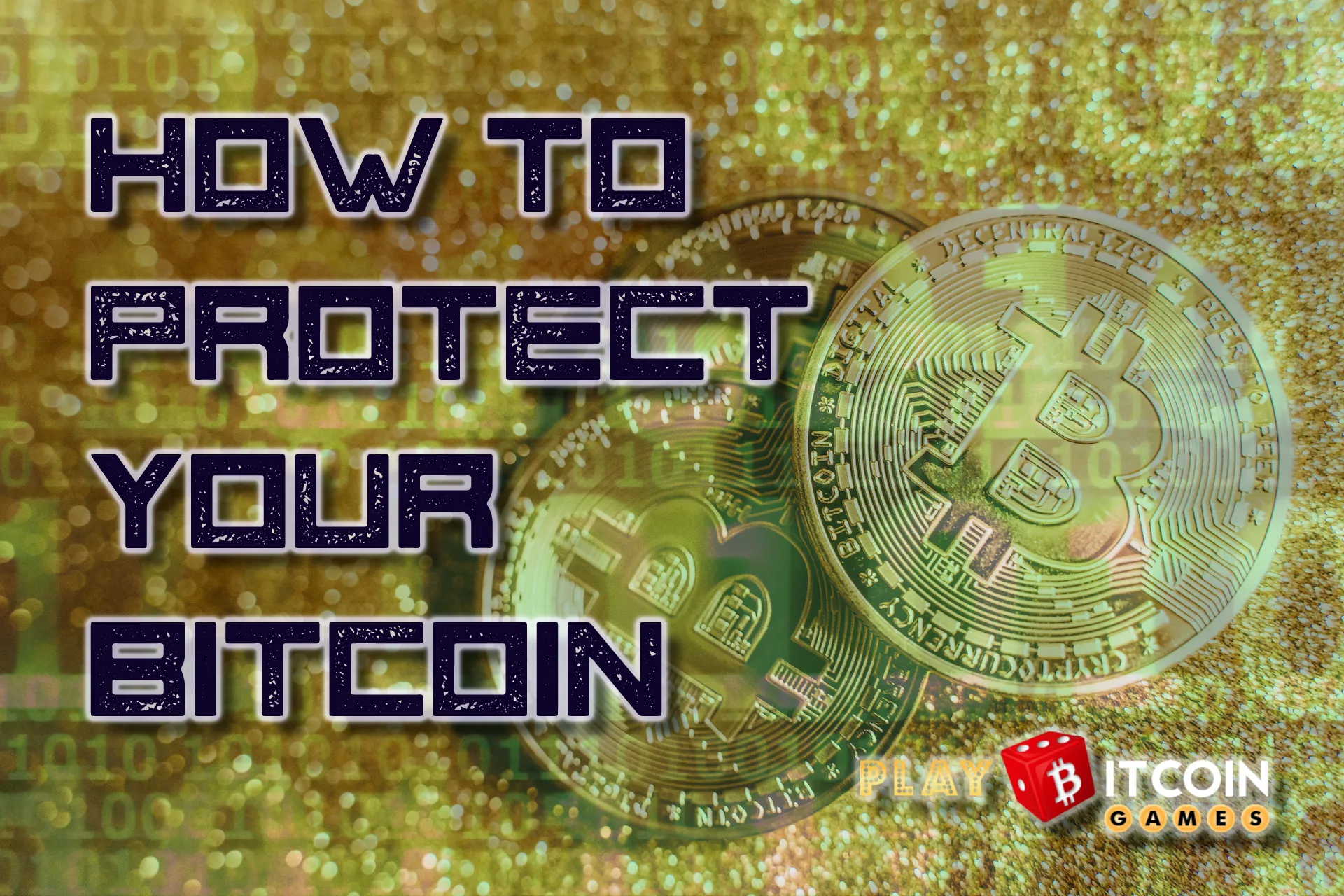8 ways to protect your bitcoin from theft and hacks
Keep safe your Bitcoin investment! Here you will learn 8 essential tips to protect your Bitcoin safe from theft and hacks. Secure your assets and learn how to spot potential threats.
It’s really important to protect your bitcoin, and doing so may be rather simple. Since the creation of the currency, thieves have found it particularly difficult to steal Bitcoin, but just like any other system, its security can be compromised.
We are not questioning Bitcoin; on the contrary, we are questioning the human aspect. Due to poor security practices, the total amount of stolen bitcoin is valued at nearly $1 billion dollars. Hence, it’s never been more important to prevent loss and protect your bitcoin in the best way possible.
In fact, those who have followed the currency since its inception will be aware that in its brief history, there have been plenty of robberies, and they have all been caused by human errors in locations with high concentrations of bitcoin.
How can you protect your bitcoin?
Being a watchdog is the best way to protect your bitcoin. The risk of losing them stretches beyond simply keeping your funds in money exchange accounts and savings accounts.
On the internet, everything is vulnerable to hacking, no matter how well-protected you think it is. This is similar to how it is in the real world.
But once you follow these suggestions, it will be very difficult for anyone who wants to steal from you.
1. Take care of your own private keys and seed phrases
Although it’s very basic, we occasionally forget this advice. Simply put, there is no better way to protect your bitcoin.
You should be extremely cautious -and at first, unconvinced- about any third-party internet services that store your bitcoin, whether they be money exchangers, currency exchange houses, or betting sites.
Before sending even one Satoshi or telling someone that you send them here, carefully consider the service and its reputation.
Go back and review the previous robbery cases: the majority of those sites were very well-regarded. Even though they were considered trusted places, they became compromised by a criminal or group of criminals. You must realize that the very moment the bitcoin leaves your wallet, it could very well end up disappearing forever.
2. Be on the lookout for phishing and fraud.
Phishing is a method of cyber-attack that is rampant worldwide. These attacks come in a variety of shapes, but they always intend to trick you into giving out valuable data.
Attacks of the phishing variety frequently result in negative consequences for those who give their information to the attackers, such as identity theft. And they might harm the reputation of the businesses they are copying.
Be wary about pharming as well. This sort of digital identity crime involves a hacker redirecting internet traffic to a bogus website whenever you start typing in the URL of a real website. Your personal data is harvested from the fake website after you enter it and is either used to perpetrate fraudulent activities or auctioned in the dark web to other identity thieves.
Here are some suggestions on how to avoid falling for a phisher’s scheme:
- Watch out for emails asking you to confirm your login information.
- Be careful with reports claiming that suspicious activity has been discovered on your account. To be sure, check those sites always from your bookmarks, not from the report links.
- Never open attachments sent to you by unknown senders. Pay close attention to file formats that are compressed or executable.
- Ignore emails including a fake invoice that you do not recognize.
- Never send important or personal information to telemarketers via email.
- Look for strange or deceptive domain names in email sender addresses.
- Do not open an email if you are unsure of its legitimacy.
- Be careful with social media posts offering airdrops or granting free NFTs. Use disposable wallets separate from your main one.
3. Protect your bitcoin by maintaining current software up to date
Protect your bitcoins using the latest updates of software applications like the Bitcoin wallet and Bitcoin core client. It makes no difference whether you’re using your computer or your smartphone.
These applications are essential for managing your bitcoin transactions and safeguarding your private keys. To be extra safe, always make sure that everything else on your computer or mobile phone is up to date and free of any kind of malware.
Do you have a web wallet? It is possible that your browser has a harmful extension installed on it without your knowledge, or your operating computer system may be compromised or out-of-date.
Are you running an executable program? You may have downloaded a malicious update or piece of malware, or the wallet might have become out of date.
Alternatively, it’s possible that you installed a shady program on your phone or computer that will automatically update in the short to medium term to infiltrate the device and steal your personal passwords.
4. Protect your bitcoin using private keys with encryption
Every wallet program worth its salt today will generate your private keys automatically. Generating these private keys is not always done in a way that is compliant with the best practices, but the most reputable ones do, which makes them more difficult to replicate.
It is important to point out that once produced, they are preserved in plain text on your device inside some personal database or file type.
To avoid this, you should have the option to encrypt the document where you store your keys in wallets that include adequate security procedures.

The same bitcoin wallets frequently have an encryption procedure that connects the private key with a secondary password or PIN; as a result, when sending bitcoins, they will ask you for this key. Therefore, if your private key is stolen, they will also need to know this key. This means that your private key alone will be useless as is since it was changed based on that PIN or password.
But, if someone gains access to the cryptographic private key, they can without you realizing it, use brute force attacks for days, months, or however long they need to eventually figure out how to decrypt those keys.
Nonetheless, if you can and your wallet allows it, use a complex password to encrypt the keys.
Now, we advise following the advice in number 7 if you plan to manage large quantities.
5. Make use of double authentication
Have you deposited your bitcoin in any online wallet service, an exchange, an online casino?
Unless you enjoy taking risks, we advise using at least a second level of security.
A particularly clever way to protect your bitcoins and any other important information is to use a process known as double authentication to confirm your identity while attempting to access a web service.
As unbelievable as it may sound, using long or complex passwords is no longer important. In contrast to the internet’s beginnings when brute force attacks were common, nowadays phishing scams, malware, and network sniffing account for 99% of password thefts.
In the case that your password gets compromised, the second protection limits access to your account since it involves a second key that can only be given at that specific moment via an alternative method.
As an example, with a Yubikey, Google Authenticator, SMS, or email, blockchain.info users may protect their accounts.
Additionally, Google Authenticator is a free, multiplatform tool that works with a wide range of other services besides Google services.
The authenticator service will provide you with a 60-second renewing, unique six-number code that you will have to enter after filling in your password. The numbered code instructs the authentication app to manage the second security factor on the page you want to log in, adding a layer of complexity to the log-in process.
Although this intricacy makes your security more robust, it does not make it absolute, since anyone that learns your password won’t be able to move away your bitcoin if they don’t have that unique code, but if they also get direct access to the device where the authentication app is installed, your crypto could be transferred away.
One more thing to be aware of: If the online wallet service provider where you deposited your bitcoins is hijacked, then none of this is useful.
6. Protect your bitcoin by creating security backups
When you have a non-custodial wallet, it is preferable to have multiple security backups of the private keys stored in different locations.
Once you’ve made such copies, make them nearly invulnerable by having them encrypted using File Encryption Tools and saving them on SD cards, USB drives, cloud storage services, etc.
Do you use a Hierarchical Deterministic Wallet or as they are commonly known HD Wallet instead? At any time, all that is required is to make a copy of the 12, 18, or 24-keyword seed. Once you’ve done this, you won’t need any more backups.
7. Use addresses with multiple signatures
They are unquestionably one of our preferred solutions because of how well they blend a minimal level of management complexity with the protection they offer, effectively preserving and protecting your bitcoin.
Actually, multi-sig or multi-signature addresses are a second kind of bitcoin address. Legacy addresses are paired with a single private key, meanwhile multi-sig addresses, on the other hand, facilitate the linking of multiple private keys, which means that all or part of those multiple keys will be necessary to sign and complete a transaction.
In other words, it is a digital counterpart of a joint bank account inside the blockchain, where money withdrawal is only permitted with the consent of the parties that have opened the account. What’s better? You don’t need to go to a bank while using a MultiSig wallet, after all. And far less, to depend on third parties to have the same functionality while maintaining a higher level of security and confidence.
The approval of many devices that are owned by the same person or company would be necessary for this class of wallets, acting as a second element in the authentication.
What are the multi-signature wallets used for?
The following are some of the most common uses for multi-sig wallets:
- By avoiding only one failure point, it will be more difficult to compromise the wallet.
- Dividing the ownership of bitcoins among many owners.
- Create a security copy to ensure that the loss of a single seed does not result in the loss of the wallet and its funds.
The most common application of multi-sig transactions is to prevent wallet infection by malware and hackers by allowing the distribution of the private keys required for Bitcoin transactions across several individuals, machines, and devices.
For instance, a multi sig wallet 2 of 3 may have its private keys distributed among a laptop, a desktop computer, and a cell phone, with two of them being necessary for moving funds. Thus, the compromise of a key cannot result in a robbery.
8. Keep them away from the network.
This is one of the more difficult processes, but it may provide a substantial layer of security to safeguard your bitcoin.
The concept is straightforward: if I need to prevent someone from stealing my private keys, I’ll store them at a location that isn’t connected to the internet.
To that end, we may differentiate between three methods of key storage:
- Paper wallets: The process of using them involves printing the password on one or more sheets of paper and storing them in secure locations.
- Be mindful of how this paper wallet was created since your bitcoins might disappear if you use a device that is connected to the internet or that might be infected.
- Brain wallets: Memorize the private key. To do this, it is possible to use HD-type cryptocurrency-type mnemonic keyphrases.
- Remind yourself that we are not machines, and human beings forget things, so be mindful of this.
- Keep in mind how these words were formed since your bitcoins might disappear if you use a device that is connected to the internet or that might be infected.
- Hardware wallets: They are pieces of equipment used to permanently contain your private keys without allowing them to be accessed. Your wallet sends the transaction through the USB/OTG connection so that the device may sign it with a private key. They are the top solutions on the market for this kind of procedure.
- These are pricey.
- By utilizing a different computer that isn’t connected to the internet for what is known as “offline transactions,” you may achieve the same result with a little more effort.
- Use a computer with an Internet connection and your Bitcoin wallet to start a new transaction.
- Pass the transaction to a USB stick and sign it using a computer that is not connected to the Internet.
- Rely on the USB once more to send the signed transaction to the Internet-connected computer so that it may be transmitted across the network.
- It is an expensive but secure technique.
The private keys of multi-signature addresses can also be encrypted while adhering to the concept of storing the private keys out of the network. To put it in another way, some of these advice options can be combined for extra safety.
Conclusion
Despite the fact that Bitcoin technology is secure in and of itself and that the major online payment providers have made significant improvements in terms of security, no system can ever be completely protected against hackers, thieves, and other bad actors.
In addition, using common sense is a good strategy when it comes to protecting your bitcoins.
The degree of prevention should, of course, always correspond with the amount of money being managed and will vary depending on each.
Always remember that in Bitcoin, you are your own bank, you are responsible for your own security, and you may set up your own protocol.
With these eight recommendations to protect your bitcoin (some of which are stackable), you will significantly reduce the margin of maneuver for anybody interested in doing anything with your bitcoins.


